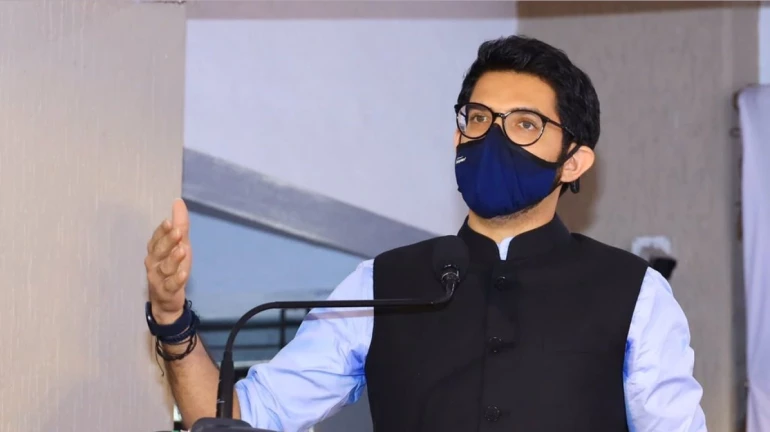
The former minister and leader of the Shiv Sena (UBT), Aaditya Thackeray, has raised concerns over the participation of Maharashtra Chief Minister, Eknath Shinde, in the World Economic Forum (WEF) held in Davos, Switzerland. Thackeray claims that the CM arrived late and missed crucial meetings, despite the state government spending a staggering INR 40 crore on the trip.
Thackeray stated, “When you charter a jet, your goal should be to arrive on time and without incident so that you can keep up with the schedule. But on January 16, the CM arrived too late and missed crucial developments. The CM later signed a few MoUs before returning the following day. Is it appropriate to use so much tax money for this? And what has this unconstitutional CM done by spending this much?”
He also questioned the validity of the memoranda of understanding (MoUs) signed during the trip and asked for the qualifications of the businesses that signed them. He further alleged that some of the companies already had agreements with the state, yet their names were listed among the new MoUs.
The former minister's statements have sparked a debate on the use of public funds for such trips, and the potential impact on the state's economy and environment.
This partnership is a significant step forward for Maharashtra, as it is the largest state in India in terms of GDP, and plastic pollution is a major concern in the state.
Aaditya Thackeray, who served as the Minister of Environment and Climate Change for Maharashtra, recognized the importance of this partnership and the role it plays in the state's efforts to combat plastic pollution and climate change. He stated, "This agreement with the World Economic Forum's Global Plastic Action Partnership marks a critical juncture in our state's battle against the plastic pollution endemic. Covid proved a hurdle towards our single-use plastic ban, where health priorities in PPP took precedent."
He continued, "Now, as we refocus on our climate and sustainability objectives, we are laying the foundation to deliver the systems-wide change needed across sectors. This partnership is the building block as we transition towards a more resource circular approach to tackle climate change while strengthening our economy."
The partnership with GPAP underlines the state's goal to become resource-efficient and tackle climate change as it aims to create a circular economy. The partnership will support the state in its efforts to reduce single-use plastic, and in the long-term, it will reduce the carbon footprint of the state.





